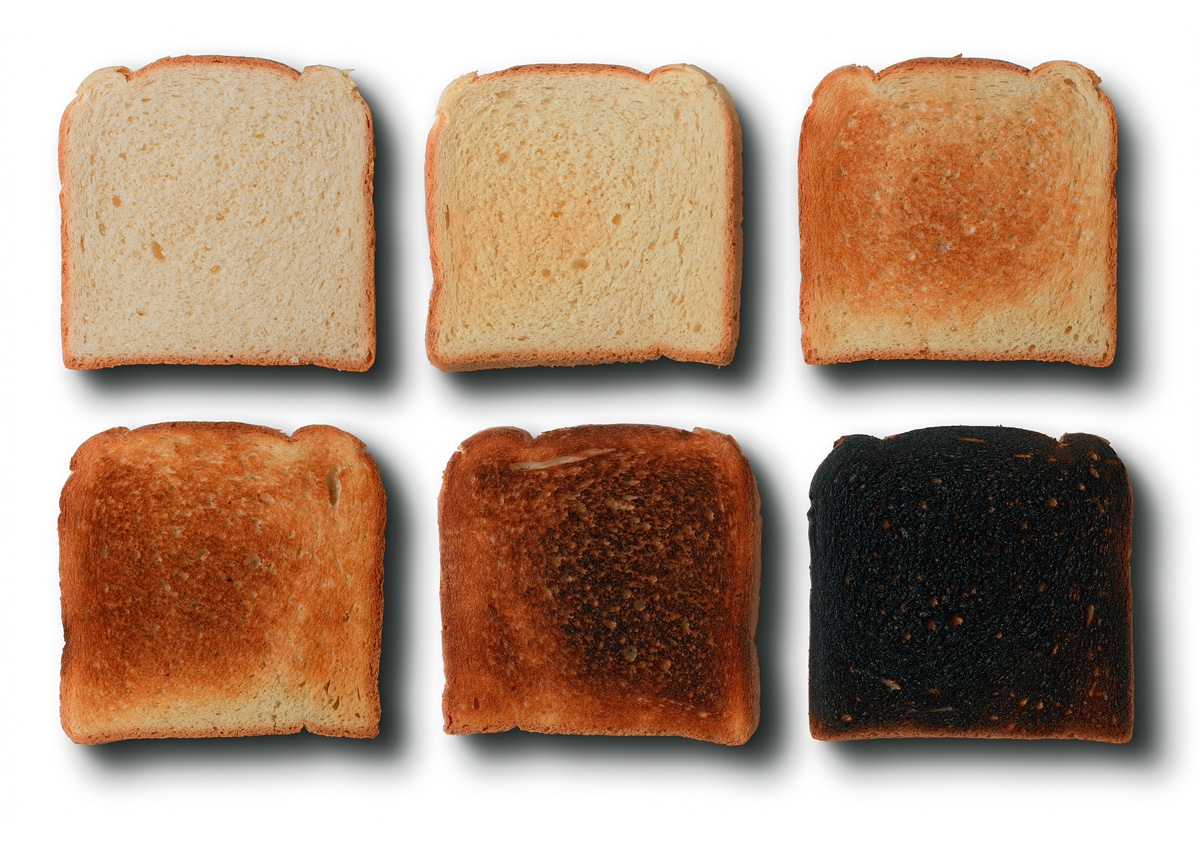
UK Scientists Develop Genome-edited Wheat to Reduce Cancer Risk from Bread
March 3, 2021| |
Scientists from the UK led by Rothamsted Research have used CRISPR-Cas9 to reduce a cancer-causing compound that is commonly found in a toast.
Acrylamide forms during baking and is further increased when the bread is toasted, and the darker the toast, the more of this carcinogenic compound it contains. Using genome editing, the research team has now developed a type of wheat that is less likely to produce acrylamide when baked.
The researchers used genome editing to reduce asparagine in wheat. Asparagine is the amino acid that is converted to acrylamide during baking and toasting. The researchers ‘knocked out' the asparagine synthetase gene, TaASN2, in wheat. They report that asparagine concentrations in the grain were substantially reduced in the genome-edited plants compared to un-edited plants, with one line showing a more than 90% reduction.
For more details, read the news article in Rothamsted Research.
| |
You might also like:
- Rothamsted Research Study Shows White Flour is Healthiest It's Been in 200 Years
- EU Commissioner Vytenis Andriukaitis on the Potential of Gene Editing
- CSIRO Scientists Develop Healthier Bread Wheat
Biotech Updates is a weekly newsletter of ISAAA, a not-for-profit organization. It is distributed for free to over 22,000 subscribers worldwide to inform them about the key developments in biosciences, especially in biotechnology. Your support will help us in our mission to feed the world with knowledge. You can help by donating as little as $10.
-
See more articles:
-
News from Around the World
- FAO DG Outlines "Four Betters" as Strategy to Transform Agri-food Systems
- ISAAA Report Summary Now Available in Indonesian, Chinese, Thai, and Vietnamese
- Science-based Ag-biotech Curriculum Developed for Middle, High School Students in the US
- Wheat's 'Second Genome' Could Help in the Plant's Survival against Environmental Stress
- Study Reveals Plant Clock Key to Producing More Food for the World
- Asian Biotechnology Information Centers Pledge to Advance Biosciences
- Researchers Identify Mechanism that Protects Plant Fertility from Stress
-
Research Highlights
- NtCIPK11 Confers Salt and Drought Tolerance in Arabidopsis
-
Plant
- CRISPR-Cas9 Could Provide the Much-needed Help on Food Security against Climate Change
- UK Scientists Develop Genome-edited Wheat to Reduce Cancer Risk from Bread
- Researchers Invent New Gene Editing Tool
-
Health
- Survey Shows People with Low Scientific Reasoning Tend to Believe Conspiracy Theories on COVID-19
-
Read the latest: - Biotech Updates (February 18, 2026)
- Gene Editing Supplement (January 28, 2026)
- Gene Drive Supplement (February 22, 2023)
-
Subscribe to BU: - Share
- Tweet

